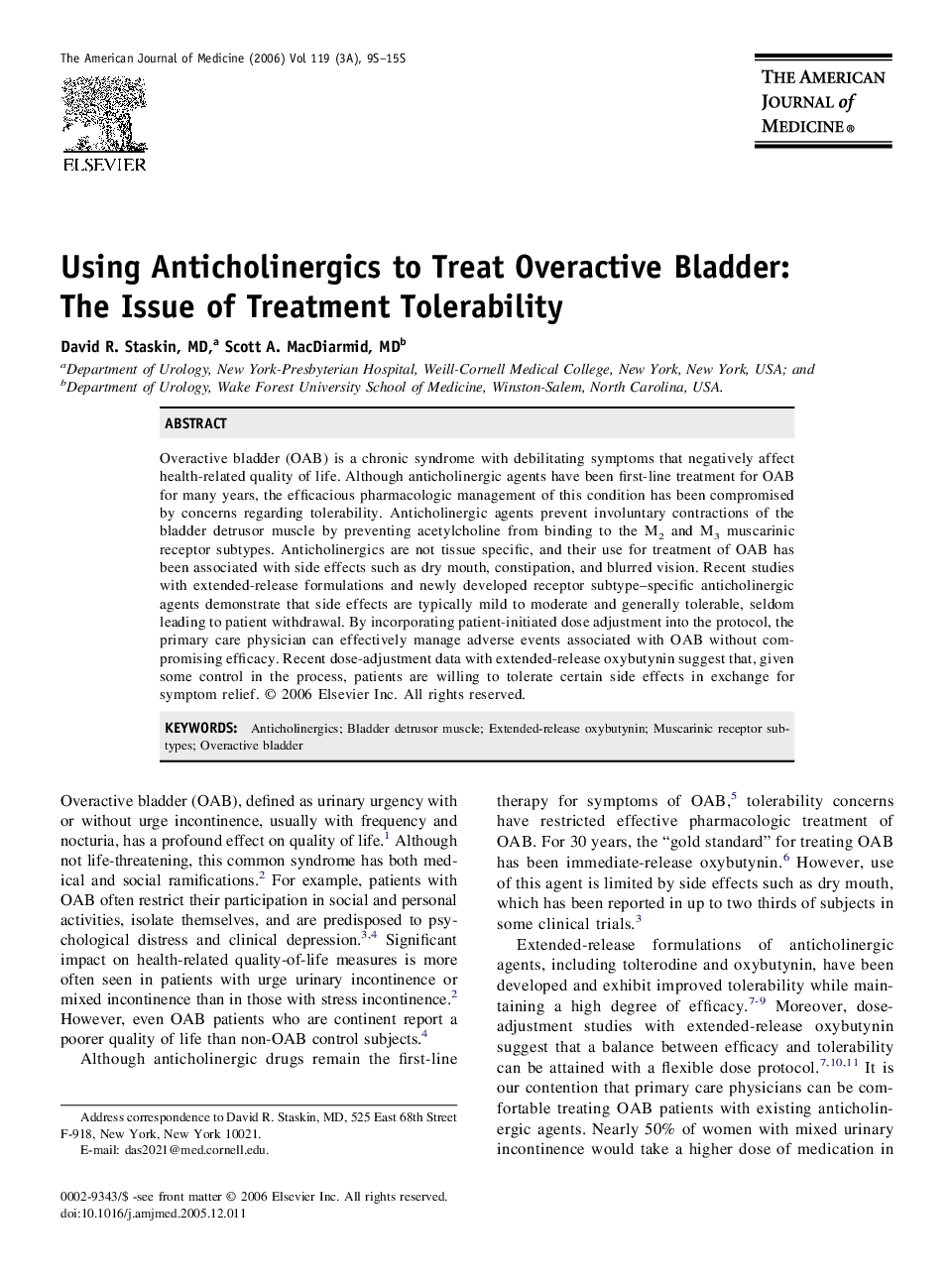| Article ID | Journal | Published Year | Pages | File Type |
|---|---|---|---|---|
| 2726253 | The American Journal of Medicine | 2006 | 7 Pages |
Abstract
Overactive bladder (OAB) is a chronic syndrome with debilitating symptoms that negatively affect health-related quality of life. Although anticholinergic agents have been first-line treatment for OAB for many years, the efficacious pharmacologic management of this condition has been compromised by concerns regarding tolerability. Anticholinergic agents prevent involuntary contractions of the bladder detrusor muscle by preventing acetylcholine from binding to the M2 and M3 muscarinic receptor subtypes. Anticholinergics are not tissue specific, and their use for treatment of OAB has been associated with side effects such as dry mouth, constipation, and blurred vision. Recent studies with extended-release formulations and newly developed receptor subtype-specific anticholinergic agents demonstrate that side effects are typically mild to moderate and generally tolerable, seldom leading to patient withdrawal. By incorporating patient-initiated dose adjustment into the protocol, the primary care physician can effectively manage adverse events associated with OAB without compromising efficacy. Recent dose-adjustment data with extended-release oxybutynin suggest that, given some control in the process, patients are willing to tolerate certain side effects in exchange for symptom relief.
Related Topics
Health Sciences
Medicine and Dentistry
Medicine and Dentistry (General)
Authors
David R. MD, Scott A. MD,
